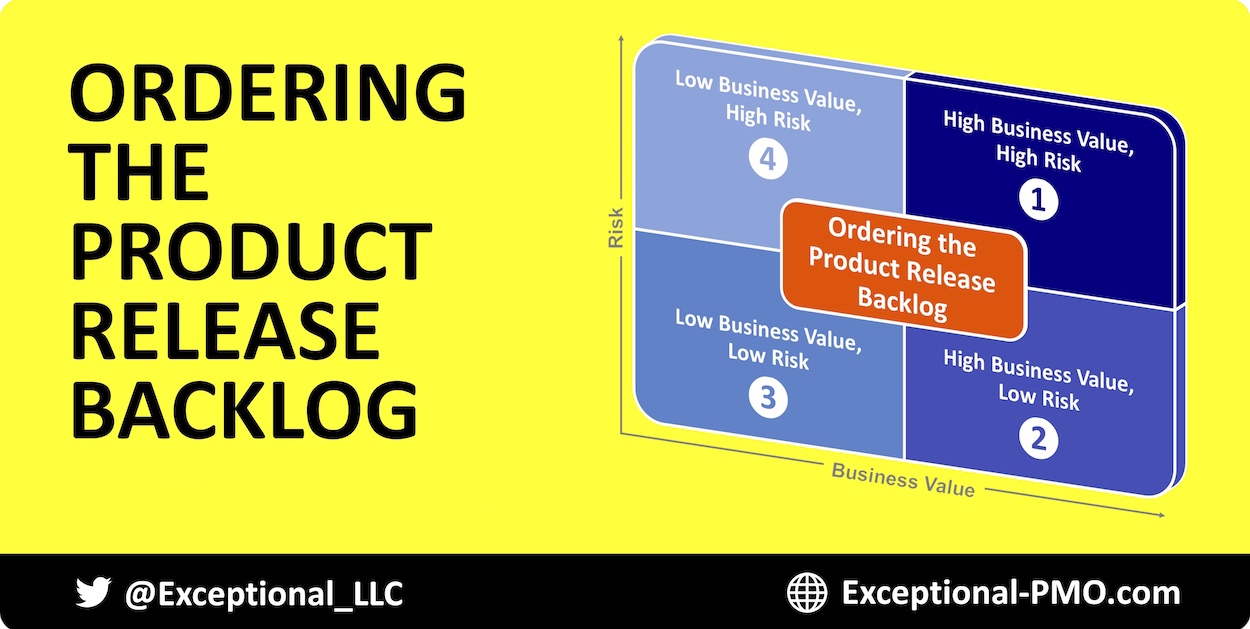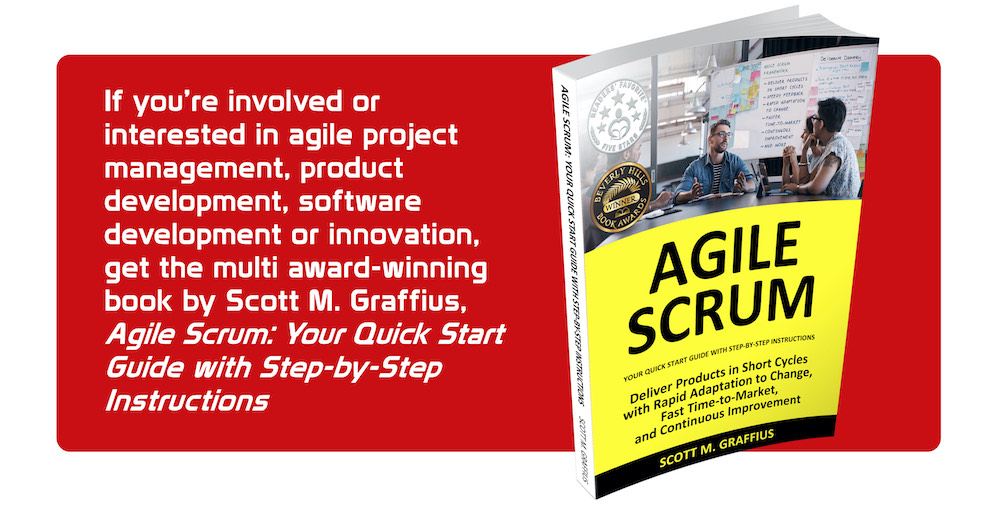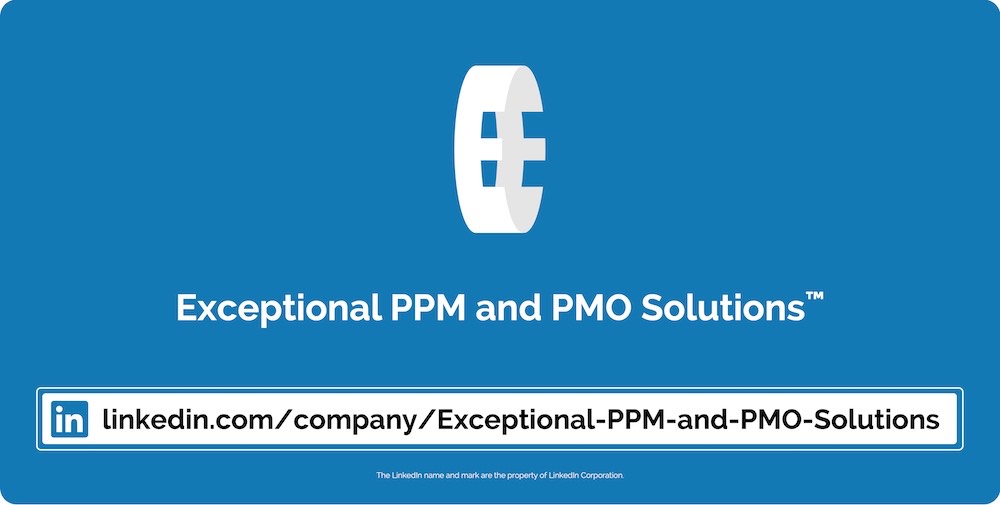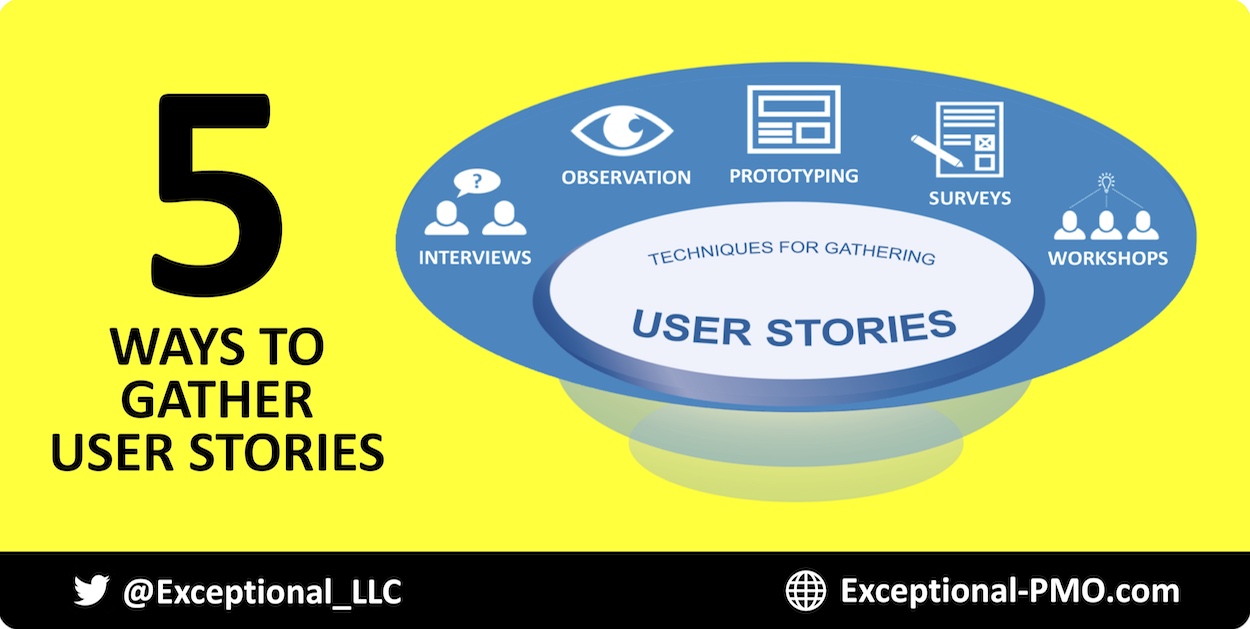Product Backlog
Technique for Ordering the Product Backlog: Factoring Business Value and Risk
16 January 2018

Scrum is the most popular agile project development and delivery framework. In Scrum, the product release backlog (sometimes referred to as the product backlog) is a list of features, user stories, bugs to be fixed, and/or other requirements. The Product Owner is the ultimate holder of the backlog. The Product Owner prioritizes items, and different methods can be employed to help accomplish that work. This brief article focuses on the technique of factoring business value and risk.
Each item in the product release backlog would be rated as either high or low in two dimensions: business value and risk. It is suggested that high business value, high-risk items are worked on first. While that may seem counterintuitive, the earlier this work is done, the sooner the team will move to mitigate the issues and unknowns—leading to a higher quality product. If there's a failure, it will occur early and relatively inexpensively.
An ordering of priorities is illustrated above, and it follows:
1. High business value, high risk.
2. High business value, low risk.
3. Low business value, low risk.
4. Low business value, high risk.
Alternatively, other prioritization methods—such as the MoSCoW ranking model— may be used. MoSCoW will be highlighted in a subsequent article.
This content is an abridged excerpt from the award-winning book, Agile Scrum: Your Quick Start Guide with Step-by-Step Instructions.

About Agile Scrum: Your Quick Start Guide with Step-by-Step Instructions

A fantastic agile transformation experience and result with a client organization in the entertainment industry was the inspiration for Scott M. Graffius’s multi award-winning book, Agile Scrum: Your Quick Start Guide with Step-by-Step Instructions (ISBN-13: 978-1533370242).
Here's an excerpt from the book: "Shifting customer needs are common in today's marketplace. Businesses must be adaptive and responsive to change while delivering an exceptional customer experience to be competitive. Traditional development and delivery frameworks such as waterfall are often ineffective. In contrast, Scrum is a value-driven agile approach which incorporates adjustments based on regular and repeated customer and stakeholder feedback. And Scrum’s built-in rapid response to change leads to substantial benefits such as fast time-to-market, higher satisfaction, and continuous improvement—which supports innovation and drives competitive advantage."
With clear and easy to follow instructions, Agile Scrum: Your Quick Start Guide with Step-by-Step Instructions helps you:
- Implement and use the most popular agile framework―Scrum;
- Deliver products in short cycles with rapid adaptation to change, fast time-to-market, and continuous improvement; and
- Support innovation and drive competitive advantage.
Hailed by Literary Titan as “the book highlights the versatility of Scrum beautifully.”
Winner of 17 first place awards.
Agile Scrum: Your Quick Start Guide with Step-by-Step Instructions is available in paperback and ebook/Kindle in the United States and around the world. Some links by country follow. Get your copy today!
- 🇦🇺 Australia
- 🇦🇹 Austria
- 🇧🇪 Belgium
- 🇧🇷 Brazil
- 🇨🇦 Canada
- 🇨🇿 Czech Republic
- 🇩🇰 Denmark
- 🇫🇮 Finland
- 🇫🇷 France
- 🇩🇪 Germany
- 🇬🇷 Greece
- 🇭🇺 Hungary
- 🇮🇳 India
- 🇮🇪 Ireland
- 🇮🇱 Israel
- 🇮🇹 Italy
- 🇯🇵 Japan
- 🇱🇺 Luxembourg
- 🇲🇽 Mexico
- 🇳🇱 Netherlands
- 🇳🇿 New Zealand
- 🇳🇴 Norway
- 🇪🇸 Spain
- 🇸🇪 Sweden
- 🇨🇭 Switzerland
- 🇦🇪 UAE
- 🇬🇧 United Kingdom
- 🇺🇸 United States
- 🌏 More countries

Let's Connect

Connect with us on LinkedIn, Twitter, and Facebook.

© Copyright 2018 Scott M. Graffius, Exceptional PPM and PMO Solutions™. All rights reserved. This material may not be published, broadcast, rewritten or redistributed without the express written permission of Scott M. Graffius/Exceptional PPM and PMO Solutions™.

Techniques for Gathering User Stories
25 October 2017

In Scrum, user stories act as requirements. Each story represents a portion of business value that a team can deliver in an iteration. A common format is: “As a (role), I want (goal) so that I can (reason).” Here's an example: “As a customer, I want shopping cart functionality so that I can buy items online.” User stories are captured in the product release backlog. This short article focuses on techniques for gathering user stories.
The following methods can help the Product Owner gather material for user stories:
• Interviews: Ask a diverse group of users—or anticipated users if the product/service does not yet exist—open-ended questions containing "how" or "why." For example: "How would you pair this device with your iPhone?”
• Observation: Watch people using the product/service.
• Prototyping: Use tools such as sticky notes, PowerPoint, and wireframes to illustrate ideas, show preliminary versions of the product, and facilitate discussions.
• Surveys: Employ surveys where the Product Owner verbally asks respondents pre-determined questions, or questionnaires where items are presented via forms (online or in hard copy format).
• Workshops: This is a type of brainstorming where the group identifies as many user story ideas as possible. To support getting a high quantity of ideas, it is suggested that participants should not agree/disagree with or assess items during the workshop.
The above content includes excerpts from the book, Agile Scrum: Your Quick Start Guide with Step-by-Step Instructions.

About Agile Scrum: Your Quick Start Guide with Step-by-Step Instructions

A fantastic agile transformation experience and result with a client organization in the entertainment industry was the inspiration for Scott M. Graffius’s multi award-winning book, Agile Scrum: Your Quick Start Guide with Step-by-Step Instructions (ISBN-13: 978-1533370242).
Here's an excerpt from the book: "Shifting customer needs are common in today's marketplace. Businesses must be adaptive and responsive to change while delivering an exceptional customer experience to be competitive. Traditional development and delivery frameworks such as waterfall are often ineffective. In contrast, Scrum is a value-driven agile approach which incorporates adjustments based on regular and repeated customer and stakeholder feedback. And Scrum’s built-in rapid response to change leads to substantial benefits such as fast time-to-market, higher satisfaction, and continuous improvement—which supports innovation and drives competitive advantage."
With clear and easy to follow instructions, Agile Scrum: Your Quick Start Guide with Step-by-Step Instructions helps you:
- Implement and use the most popular agile framework―Scrum;
- Deliver products in short cycles with rapid adaptation to change, fast time-to-market, and continuous improvement; and
- Support innovation and drive competitive advantage.
Hailed by Literary Titan as “the book highlights the versatility of Scrum beautifully.”
Winner of 17 first place awards.
Agile Scrum: Your Quick Start Guide with Step-by-Step Instructions is available in paperback and ebook/Kindle in the United States and around the world. Some links by country follow. Get your copy today!
- 🇦🇺 Australia
- 🇦🇹 Austria
- 🇧🇪 Belgium
- 🇧🇷 Brazil
- 🇨🇦 Canada
- 🇨🇿 Czech Republic
- 🇩🇰 Denmark
- 🇫🇮 Finland
- 🇫🇷 France
- 🇩🇪 Germany
- 🇬🇷 Greece
- 🇭🇺 Hungary
- 🇮🇳 India
- 🇮🇪 Ireland
- 🇮🇱 Israel
- 🇮🇹 Italy
- 🇯🇵 Japan
- 🇱🇺 Luxembourg
- 🇲🇽 Mexico
- 🇳🇱 Netherlands
- 🇳🇿 New Zealand
- 🇳🇴 Norway
- 🇪🇸 Spain
- 🇸🇪 Sweden
- 🇨🇭 Switzerland
- 🇦🇪 UAE
- 🇬🇧 United Kingdom
- 🇺🇸 United States
- 🌏 More countries

Let's Connect

Connect with us on LinkedIn, Twitter, and Facebook.

© Copyright 2017 Scott M. Graffius, Exceptional PPM and PMO Solutions™. All rights reserved. This material may not be published, broadcast, rewritten or redistributed without the express written permission of Scott M. Graffius/Exceptional PPM and PMO Solutions™.
